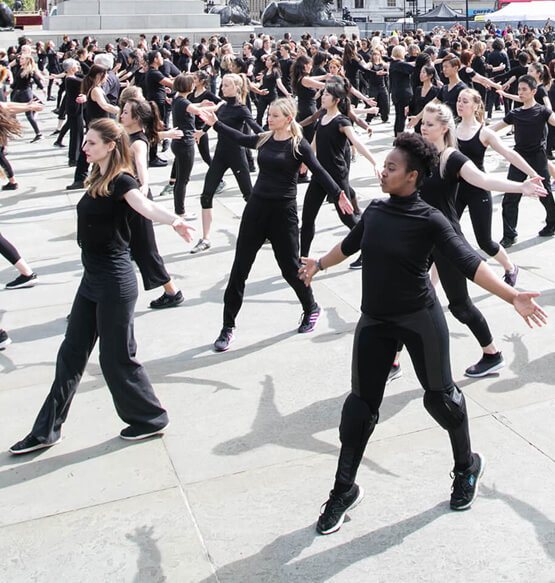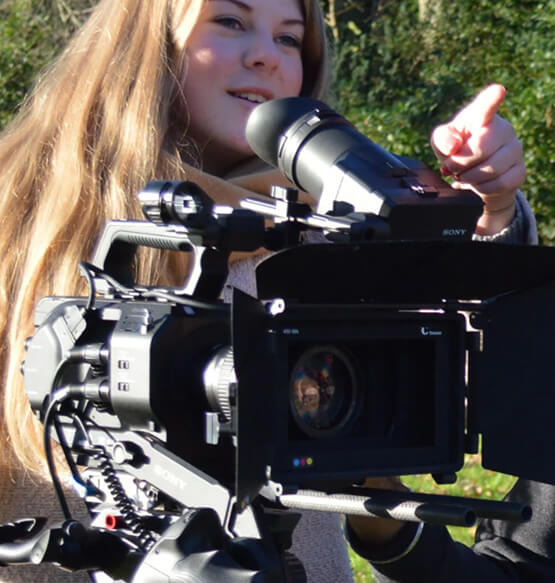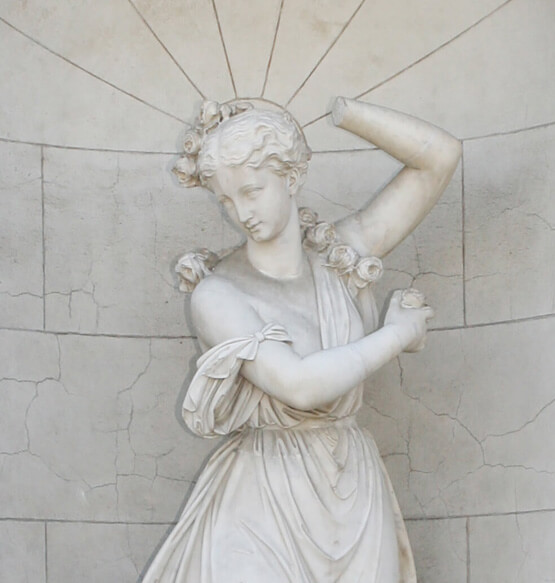Duration:
1 year (full-time)
Number of credits:
180 credits
Start date(s):
September 2026
Advance, develop, and reimagine your dance practice, and launch yourself into your professional dance career.
On this highly practical programme, you’ll encounter a range of dance practices, including dance techniques, improvisation, performance, choreographic practice, and devising, as well as the theories that support them. Your curriculum focuses on practical, contextual, and industry-based explorations of dance performance, allowing you to expand your sense of self as a practitioner. You’ll graduate with the practical skills you need to enter the arts industry and the visionary skills to be a change-maker for good.
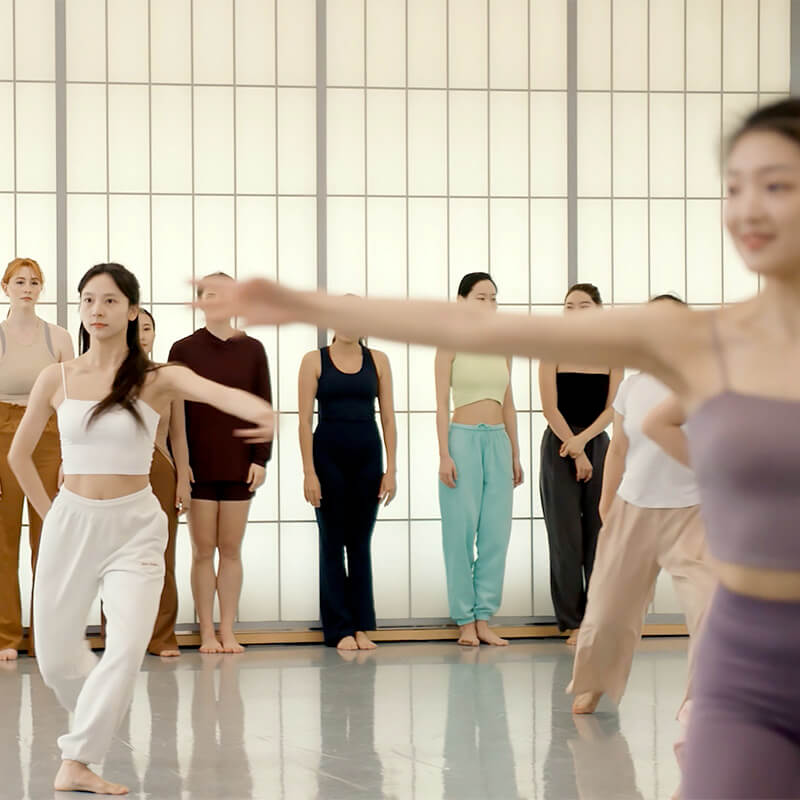
Finding your voice
We’re committed to supporting you in finding your voice, and welcome students from all backgrounds and cultural knowledges. You will:
- Develop and test new ideas and skills through practice-research, exploring how they relate to training, performance-making, dance philosophy, and dramaturgy
- Explore historical and contemporary choreographic and artistic practices, discussing them through a range of frameworks
- Creatively apply your new knowledge to the issues facing dance ecologies today, including the practical and aesthetic possibilities of climate change.
Modules
Module overview
These practical classes provide a framework for you to explore movement potential using a variety of approaches. Technical, performance, improvisational and interpretative skills are addressed using the interplay between action, imagination, observation and questioning.
You will be encouraged to reflect on your own practices as dancers and to find ways to explore detailed kinesthetic awareness through testing (trial and error) and to define how movement is experienced in relation to space, time and gravity. You will be involved in expressive and interpretative tasks in response to music, sound accompaniment or text and work with other dancers to locate synergies and sensitivity in your danced relationships.
You will experience a variety of practices as part of the portfolio. The approach and demands of each class will vary according to the interests and expertise of each tutor offering a range of experiences from within the professional field.
Teaching and learning
The delivery of this modules is four, one and half hour practical studio sessions per week.
There will be an additional 30 minutes of digital support per week. This will consist of audio-visual resources that accompany and support the practice delivery.
Teaching practice is aligned with the core principles of UDL and our philosophy is to be inclusive, respectful and accessible to all. Practical classes, workshops, peer review and tutorials. Peer review and critical feedback will be included in all sessions and tutorials can be booked during office hours.
Formative feedback is inherent in the delivery of a dance practice sessions and provided through manifold embodied perspectives covering the full range of learning styles, including physical/kinaesthetic, aural/auditory-musical, visual/spatial, verbal/linguistic, logical/anatomy-somatic, intra and interpersonal approaches.
Furthermore, every session involves tasks and/or mini projects which provide opportunities for peer and tutor feedback and formative learning.
Group and individual tutorials outside of the taught sessions offer opportunities to discuss individual interests, challenges and projects.
Assessment
This module will be assessed using a practical class 1 (30%) and a practical 2 (50%).
Module overview
This module interrogates practically and theoretically the question of what happens when we have a creative encounter. It investigates what happens when we have a creative encounter with others, such as established and novel lines of enquiry for dancers and performers; encounters in new settings in and outside of dance; and in and with institutions such as museums; work with and for different communities; and critical artistic engagement with past and present contexts.
It investigates how we might engage together in a creative practice and queries why a practice might be important, or excluding, or lean into an embodied, relational engagement necessary to create the work we are passionate about.
The module will explore topics that put the creative encounter front and centre, for example, leadership and collaboration, working with other professional artists and those who come to dance for the first time; delving into the topics of cultural heritage and community; institutional contexts and working through how we use creative practice to engage with topics such as care, socially engaged facilitation, audience relation, direction, producing, curating; showcasing topics connected to why we do this, for example to make an impact on health, empowerment, society, audiences, institutions, cultural engagement and interpretation; creating the ‘what if...’, using our imaginations to set up creative encounters as dance activists, artists, vision-makers of the future.
Teaching and learning
This is a year-long module, consisting of one, two-hour seminar, workshop or experiential laboratory per week.
The sessions will be a mixture of practical and theoretical engagement and indicated clearly to students.
There will be an additional 30 minutes of online digital support per week. This will consist of audio-visual resources will deepen understanding and support practice and thinking.
Assessment
This module will be assessed using a digital exposition (50%) and a project presentation (50%).
Module overview
This module is for you to engage with, demonstrate and develop your performance practice. It rests on one of the core understandings that underpins this programme: that through performance the dancer can engage with intellectual, imaginative, physical and kinaesthetic challenges in order to develop their learning.
This is supported and enhanced by the Thinking through Performance, Creative Encounters, Dance Practice and Approaching Performance modules. It draws insights from each of these modules and encourages you to demonstrate through performance, the links between technique, choreography and theoretical strands of study.
You will have timetabled sessions with commissioned choreographers as well as the opportunity to work with student choreographers from both undergraduate and postgraduate programmes. You will experience a variety of working methods, e.g. improvisation, learned repertoire, diverse devising processes and styles depending on the commissioning process each year.
Teaching and learning
This module consists of one, two-hour and 30 minute rehearsal each term week and an intensive period of rehearsals outside of regular term times with commissioned external choreographers up to around 30 hours of contact time.
Rehearsals will provide the context for learning to take place, emobodying the knowledge is what is required of students.
There will be an additional 30 minutes of online digital support per week. This will consist of reviewing rehearsal footage and being introduced to relevant choreographic work to support your understanding of the context of the work that you are doing. You will be expected to continue to practice the materials that you are working with between rehearsals.
The main focus of the teaching and learning in this module is through experiencing the creation of choreographic works through: Rehearsals that include workshopping ideas, choreographic tasks, Presentations and performances, small group or paired discussion, Tutorials, Assigned viewings/readings, Video observations and analysis and Attendance at performances.
These are all part of the working life of a dance artist. Giving you the opportunity to go through the choreograph process with a number of choreographers that will give you a breadth of experience.
Discussion, reading, independent study and practice, video observations and analysis are all related activities that a professional dance artist would be using to support their career, in the context the MA they are supported and directed by tutors and peers. Here we seek to develop the positive habits that help sustain a career as a dance artist.
Assessment
This module will be assessed using a series of performances that build your portfolio (100%).
Module overview
This module develops the work studied in Dance Practice. Approaching Performance and will deepen technical and artistic understanding and their exploration of movement potential using a range of practices.
You will critically interrogate your technical knowledge of dancing and deepen your awareness of communicating movement. You will be involved in expressive and interpretative tasks in response to music, sound accompaniment or text and work with other dancers to locate synergies and sensitivity in their danced relationships. Focus will be on performative qualities alongside essential technical practice.
Via a performative presentation, you can demonstrate advanced performance skills and the problems and possibilities of ‘being seen’ (Deborah Hay) considering ‘dancing as an ensemble’ as well as the performer-audience relationship.
You will experience a variety of practices as part of the portfolio. The approach and demands of each class will vary according to the interests and expertise of each tutor offering a range of experiences from within the professional field.
Teaching and learning
This module consists of four, one and a half dance studio practice classes per week
Teaching practice is aligned with the core principles of UDL and our philosophy is to be inclusive, respectful and accessible to all.
Practical classes, workshops, peer review and tutorials. Peer review and critical feedback will be included in all sessions and tutorials can be booked during office hours.
Formative feedback is inherent in the delivery of a dance practice sessions and provided through manifold embodied perspectives covering the full range of learning styles, including physical/kinaesthetic, aural/auditory-musical, visual/spatial, verbal/linguistic, logical/anatomy-somatic, intra and interpersonal approaches.
Every session involves tasks and/or mini projects which provide opportunities for peer and tutor feedback and formative learning.
Group and individual tutorials outside of the taught sessions offer opportunities to discuss individual interests, challenges and projects.
There will be an additional 30 minutes of online digital support per week. This will consist of audio-visual resources that accompany and support the practice delivery.
Assessment
This module will be assessed using a practical dance class (50%) and a performative studio presentation (50%).
Module overview
This module invites you to interrogate artistic and performance practices, including your own modes of making, as forms of research discovery. It explores the relations between practice and different forms of codified and non-codified knowledge from the perspective of practitioners in dance, performance or other creative practices; and through exploration of concepts, theories and assumptions which underpin and inform performance.
Combining practice-as-research methodologies with philosophical enquiry, you will be challenged to deploy a range of critical research methodologies which combine the kinaesthetic, the self-reflective and the theoretical.
The module supports you to understand how artistic processes can be used to generate and embrace a multiplicity of conceiving, engaging and generating knowledges. Key topics include the nature of performance as art, epistemology, and the aesthetics and ethics of dance and performance, including the questioning of power structures within the field. These issues are examined through a combination of readings, discussions, practical tasks and embodied experiences, providing space to consider the cultural, political and ethical ramifications of performance practices in studio-based, classroom-based and hybrid settings.
Teaching and learning
This module is taught through a one, two-hour seminar and one, two-hour hybrid session per week.
Lecture and seminars will cover philosophical examinations of performance, while hybrid sessions interrogate the nature of artistic practices as a method of research.
There will be an additional 30 minutes of online digital support per week. This will consist of audio-visual resources will deepen understanding and support practice and thinking.
Assessment
This module will be assessed using a presentation (50%) and a blog (50%).
Module overview
This independent study module is the ‘exit’ module of the MA Dance Practice and Performance programme: the project is designed to capture your learning through the programme, a presentation of where you see yourself as a dance artist and tests your readiness to embark or re-embark into your career.
The module provides opportunities for you to undertake independent practice research in order to produce a personal performance practice manifesto which fulfils your research interests and extrapolates the dance practice and performance discourse which you have encountered through the programme.
You will be encouraged to develop a professional, outward-facing project in order to engage with a unique vision for the development of your practice. The module will support your exploration and planning of performances, training schemes, dance workshops and rehearsal techniques, for example.
You will be encouraged to criticise, re-examine, re-invent or disrupt the artistic aims and perspectives of dance performance and to consider the implications for performers, training methods, institutions, and what we recognise as the ‘workforce’, labour and ethos of the dance ‘industry’.
You will develop original research which is supported by tutorials, peer review and workshops. The module operates as a series of practical workshops, laboratory tasks, feedback sessions, seminars and tutorials. Key feedback points are programmed to prepare you for independent working and lead to professional practice standards
Teaching and learning
This module consists of six, three-hour sessions in the spring and summer and then another four, three-hour sessions for you to participate in group feedback sessions.
After the spring break, there will be another four, three-hour sessions for you to participate in group feedback sessions. The rest of the contact time will be arranged tutorials.
Assessment
This module will be assessed using a work-in progress and proposal showing (30%) and a performance project and documentation (70%).
These are the current planned modules on this course and may be subject to change.
Career
By the end of your degree, you’ll have discovered your artistic direction, developed the skills to express it, and gained the readiness and confidence to begin a professional career.
You will:
- Graduate with still and moving images and text to create a portfolio that represents you to the industry
- Benefit from industry guest workshops on current professional projects, working practices, language and social networks, and Q&A sessions on entering the industry
- Emerge with the ability to locate and represent your specific practices, interests, and skills within a cultural marketplace.
You’ll also graduate with skills beyond the scope of a performer, including communication, project management, and collaborative feedback models. These skills could lead you into a range of roles in the arts, such as teaching, curation, studio management, arts administration, producing, and research.
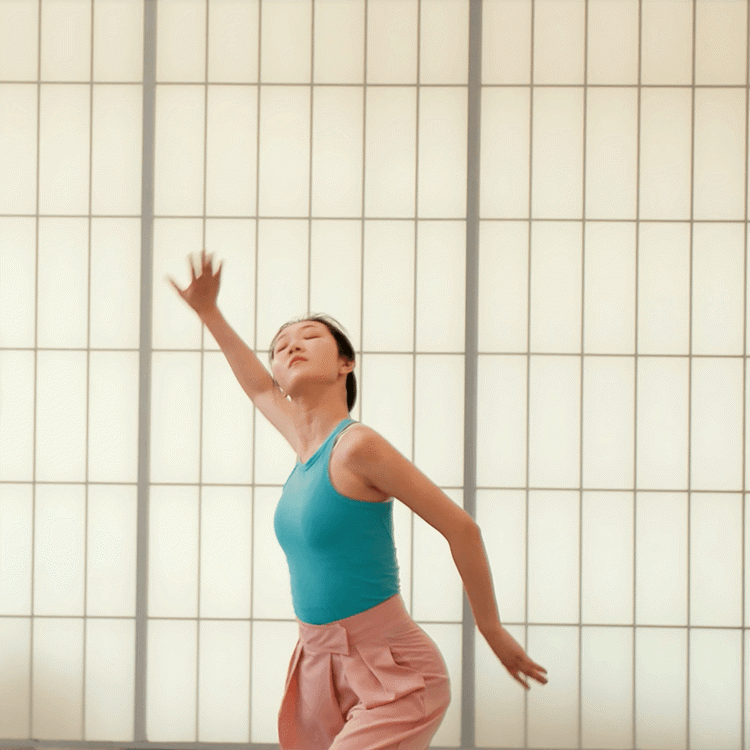
Professional connections
Our staff enjoy strong relationships with a very wide range of international dance artists, companies, choreographers, festivals, producers, funders and more. They’ll share their experiences of establishing such relationships through teaching, guest contributions, and wider industry opportunities, including student access to workshops and performances.
Learning and assessment
How you'll learn
Immerse yourself in a practice-centred MA Dance Practice and Performance that combines creative exploration, advanced studio practice, and professional readiness.
Most of your classes will take place in specialist studios, as well as seminar rooms, digital labs, theatres, or site-specific locations.
- Studio practice: advanced technical training encourages exploration, dialogue, collaboration, and independent thinking, often informed by ‘flipped classroom principles,’ where classes are spaces for you to practice and apply ideas with input from your peers and teachers.
- Creative collaboration and research: you’ll work collaboratively to explore how embodied practice connects with research, culture, and new ways of knowing. Studio and seminar learning intertwine through reading, discussion, and choreographic experimentation, as you work on student-led projects and performances.
- Professional growth: refine your choreographic voice and professional presence through feedback models, live and digital presentation, and commissioned works. You’ll apply project management and communication skills across independent projects that prepare you for life as a versatile dance artist.
- Inclusive community: join a globally minded, inclusive programme that values every dancer’s lived experience and way of moving. With one-to-one mentoring, translation-informed learning, and collaboration across cultures, you’ll belong to a community that celebrates difference, accessibility, and artistic individuality.

How you'll be assessed
Your assessments reflect the demands of professional dance practice, helping you develop your artistry, critical thinking, and professional skills.
You’ll engage in a mix of practical, creative, and reflective tasks that build both your portfolio and your confidence as an artist.
Your assessments will include:
- Choreographed and performed works, solo or ensemble
- Leading and facilitating workshops or creative sessions
- Digital storytelling, video, and multimedia projects
- Reflective journals, blogs, and artistic writing
- Critical essays and contextual research
- Peer and collaborative feedback exercises
- Industry-inspired briefs and real-world projects
- Curated performance portfolios and showcases
We are experts in dance education
This programme is strengthened as one of a suite of postgraduate dance programmes that offer a rich and wide variety of opportunities for students to encounter and collaborate with other students’ expertise, through participation on modules shared across programmes as well as on individual and collaborative student projects.
Dance spaces and studios
Large state-of-the-art, purpose-built dance and teaching spaces, designed for dance classes, workshops and movement exploration. Equipped with highly-sprung harlequin floors and underfloor heating.
A dedicated, well-equipped dance studio, perfect for practical dance classes and rehearsals. Equipped with highly-sprung harlequin floors, and a large TV for presentations.
Modern and accessible teaching space supporting dance theory, workshops and rehearsals.
Multipurpose hall, used for workshops, rehearsals and choreographic sharing.
Large and historic (18th-century) room used for teaching, special events and occasional performances.
Professionally rigged 350-seat theatre providing a first-rate performance venue for showcases and productions. Equipped with highly-sprung harlequin floors. Used for teaching, rehearsals and performance.
High-quality dance studio equipped with technology for rehearsals, choreography development, installations, and interdisciplinary creative practice. Equipped with highly-sprung harlequin floors and lighting rig.
Computer labs with extensive software for audio-visual editing of film and sound, and a 95-seat cinema.
Course staff
You will be taught by artists and researchers who are leading specialists in their fields and provide an excellent springboard for you to thrive in your career in dance and the arts.
Open days
Get a real taste of our campus, community and what it’s like to study at Roehampton
Applying
UK postgraduate students apply through our direct application system.
Specific entry requirements
Applicants are required to provide a link to a short film (10 minutes maximum) of them dancing. This can be a solo dance, or an excerpt from a class or performance setting where the applicant is clearly identified in the film. The work should be accompanied by a short written statement (<250 words) which reveals the applicant’s interest in developing their performance practice.
General entry requirements
International postgraduate students apply through our direct application system.
Specific entry requirements
Applicants are required to provide a link to a short film (10 minutes maximum) of them dancing. This can be a solo dance, or an excerpt from a class or performance setting where the applicant is clearly identified in the film. The work should be accompanied by a short written statement (<250 words) which reveals the applicant’s interest in developing their performance practice.
General entry requirements
Fees and funding
UK students
Tuition fees
| Entry date | MA (full-time) | MA (part-time) |
|---|---|---|
| September 2026 | £11,250 | £5,625 |
Prices shown are for the first year of your degree.
Funding your studies
We also provide other ways to support the cost of living, including on-campus car parking, hardship support and some of the most affordable student accommodation and catering in London.
International students
Tuition fees
| Entry date | MA (full-time) | MA (part-time) |
|---|---|---|
| September 2026 | £18,980 | £9,490 |
Prices shown are for the first year of your degree.
Funding your studies
We also provide other ways to support the cost of living, including on-campus car parking, hardship support and some of the most affordable student accommodation and catering in London.






















